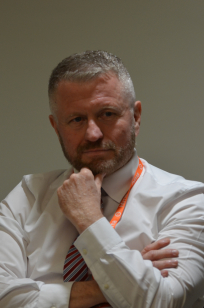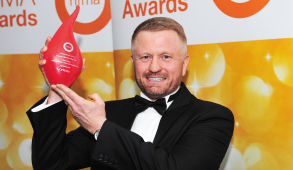Technical / Brace to step down from top Wales post
 Professor Brace – he is also an honorary professor at Swansea University School of Management – has held a number of high profile finance and general management jobs in NHS Wales, including a year as interim finance director for health at the Welsh government, two spells as finance director at the then Aneurin Bevan University Health Board and more than five years as chief executive at Carmarthenshire Local Health Board.
Professor Brace – he is also an honorary professor at Swansea University School of Management – has held a number of high profile finance and general management jobs in NHS Wales, including a year as interim finance director for health at the Welsh government, two spells as finance director at the then Aneurin Bevan University Health Board and more than five years as chief executive at Carmarthenshire Local Health Board. A substantive successor is being recruited, but in the meantime, one of his deputies, Steve Elliot, will take the post on an interim basis.
Professor Brace admits he did not start out hoping for an accountancy career. ‘I always wanted to be a teacher and I did my teacher training in London, but hated it.’
He thought about following a career in law, but the financial obstacles were too large, so he applied for the local government and NHS Wales finance training schemes. He was accepted into the latter, but feels on reflection that he was more drawn to the NHS than he realised at the time.
A turning point came after Professor Brace qualified. Initially, he spent two years in local government, gaining experience in another area of the public sector and rising rapidly to a senior role. However, on returning to the NHS, the internal market was being implemented. Two years later, he applied for a trust finance director post. ‘I got the job – four years after qualification. My life changed. There were 30 trusts at the time in Wales and that meant there were a lot of senior finance directors I could learn from.’
He felt fortunate, but also excited that in his board-level post he could influence the organisation as a whole. 'On one hand being a finance director so young was stressful, but the opportunity to be involved in the big decisions was a privilege.

Professor Brace, who was named HFMA Finance Director of the Year in 2014 (pictured right), adds: ‘I have always worked in well-run organisations that were financially successful as well as successful in other ways. I am hugely proud of that.
‘Career highlights that stick with me are those that I helped build, including some private finance initiatives or developing a new hospital. I would also think of changing working practices, the launch of the Finance Academy and new Finance Delivery Unit, and leading the national approach in Wales around value-based healthcare.’
He has been one of the leading advocates for value-based healthcare in the UK, deriving from his support for patient-level costing. He says that, under a value-based lens, the NHS must listen more to patients and what they want, and not be led just by the delivery of clinically good outcomes.
‘We know that a lot of the healthcare we currently provide does not offer any functional improvement to our patients, be that knee surgery or cataracts or cardiovascular services, so why are we doing those operations? Is that the outcome the patients are looking for? It’s about a different mindset for finance professionals, who have got to act as a bridge between working with clinical teams to provide excellent clinical services and the people receiving them,’ he says.
Professor Brace has long had an interest in healthcare improvement and spent many years developing a business case for quality, showing how it can lead to better use of resources.
He got an opportunity to bring this to fruition when he became finance director at Aneurin Bevan in 2009. ‘Due to austerity, we were planning for no growth funding for the foreseeable future, but the board realised we had to use the money we had more efficiently and effectively,’ he says.
The stumbling block was a familiar one – how to make a robust business case for quality. Professor Brace attended a course at Harvard run by value-based healthcare guru Michael Porter and, although he was the only finance professional there – the rest were senior clinicians – this was where it all fell into place.
‘We studied outcome measurement to drive better resource usage, and I realised our biggest problem was that we all used the word “quality”, but it meant different things to different people.’
There were two sets of outcomes – those that made sense to clinicians and those that meant most to patients. ‘Patients wanted less healthcare than we provided in our system,’ he adds.
The health board signed up with international outcomes measurement body ICHOM
(International Consortium for Health Outcome Measurement), standardising definitions, and began working with clinicians on improvement programmes. The work has formed the basis for the Wales value-based Prudent healthcare programme. NHS Wales has recently been chosen by the World Economic Forum as one of its first hubs to accelerate value-based healthcare.
Turning 60 this year, Professor Brace plans to enjoy his retirement and spend more time with his family, while also having the freedom to pick his projects.
‘I am interested in working with people who want to change things, and people I would enjoy working with. Finance director is a difficult and stressful job, and there comes a time to hand over to someone with new ideas and energy.
‘I always say to new finance professionals that one of their responsibilities is to leave their job in a better place. If we all did this, what an impact it would have on finance in the NHS. I hope I have left with things in a better place.'
Related content
Integrated care series 2025
This webinar series offers colleagues of ICS organisations the opportunity to discuss common priorities, challenges, and successes within their field.
HFMA, SDN & ONF Eastern annual conference 2025 - save the date
We are excited to bring you a fun packed Eastern Branch Conference in 2025 over three days.